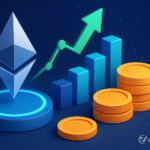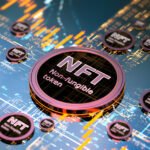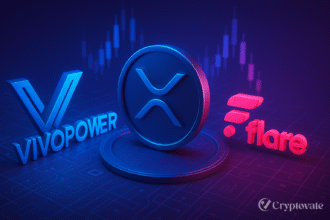OpenSea, the world’s largest NFT (Non-Fungible Token) marketplace, is under scrutiny by the U.S. Securities and Exchange Commission (SEC). The regulatory body has reportedly threatened to sue OpenSea, raising concerns about the classification of certain NFTs as securities. This development could have significant ramifications for the NFT industry, which has experienced explosive growth over the past few years.
What is OpenSea?
OpenSea is the largest and most popular decentralized marketplace for buying, selling, and trading Non-Fungible Tokens (NFTs). Launched in December 2017 by Alex Atallah and Devin Finzer, OpenSea quickly became a pivotal platform in the NFT ecosystem, supporting the trade of digital assets ranging from art and music to virtual real estate and domain names. By leveraging blockchain technology, OpenSea has enabled a new form of digital ownership that is transparent, secure, and decentralized.
SEC’s Concerns
The SEC’s interest in OpenSea stems from the regulatory body’s broader initiative to oversee the digital asset space. The central concern is whether certain NFTs should be classified as securities, which would subject them to existing securities laws. The SEC is investigating whether the way some NFTs are marketed and sold constitutes investment contracts. If so, these digital assets would fall under the SEC’s jurisdiction, requiring adherence to strict registration and disclosure regulations.
OpenSea has received a Wells notice from the SEC threatening to sue us because they believe NFTs on our platform are securities.
We're shocked the SEC would make such a sweeping move against creators and artists. But we're ready to stand up and fight.
Cryptocurrencies have long…
— Devin Finzer (dfinzer.eth) (@dfinzer) August 28, 2024SEC Investigation into OpenSea
Focus on NFT Classification: The SEC is examining whether some of the NFTs traded on OpenSea should be classified as securities under U.S. law. If NFTs are considered securities, they would be subject to the same regulations and compliance requirements as stocks and other financial instruments.
Potential Impact on OpenSea: OpenSea, which has been a major platform for NFT transactions, could face significant regulatory scrutiny. This could lead to changes in how the platform operates, including stricter compliance measures and reporting requirements.
Broader Implications for the NFT Market: The investigation is not just about OpenSea; it could set a precedent for the broader NFT market. Other NFT marketplaces and creators might need to adapt to new regulations if the SEC concludes that NFTs can be considered securities.
Regulatory Uncertainty: The SEC’s actions reflect growing regulatory interest in the NFT space, which has seen rapid growth and significant investments. This move indicates a possible trend toward more comprehensive oversight of digital assets.
Industry Response: The crypto and NFT communities are closely watching the developments. While some argue that regulation could bring legitimacy and protection to investors, others worry that over-regulation could stifle innovation and the decentralized nature of the NFT space.

Impact on the NFT Market
OpenSea has significantly influenced the development and growth of the NFT (Non-Fungible Token) market since its inception. As the largest decentralized NFT marketplace, OpenSea has not only facilitated billions of dollars in transactions but has also played a pivotal role in defining the standards and dynamics of the NFT space. Below are the key ways in which OpenSea has impacted the NFT market:
1. Catalyst for Mainstream NFT Adoption
OpenSea has been instrumental in bringing NFTs into the mainstream. Before OpenSea’s rise, the concept of digital ownership through NFTs was niche, primarily recognized by blockchain enthusiasts and early adopters. OpenSea provided a user-friendly platform that made it easy for the average person to understand, buy, and sell NFTs. This accessibility has introduced millions of people to the concept of digital ownership, contributing to the explosive growth of the NFT market.
2. Empowering Digital Creators
One of OpenSea’s most significant impacts has been empowering artists and creators. The platform allows artists to mint and sell their work directly to collectors, bypassing traditional gatekeepers such as galleries or auction houses. This democratization of access has enabled artists from all over the world to showcase their talent, reach a global audience, and generate income from their digital creations. Furthermore, the feature that allows creators to earn royalties on secondary sales has provided artists with ongoing revenue, creating a more sustainable and rewarding ecosystem for creators.
3. Diversifying the Digital Economy
OpenSea has diversified the digital economy by creating new markets for digital goods. NFTs are not limited to digital art; they encompass a broad range of assets, including music, virtual real estate, collectibles, and even intellectual property rights. OpenSea’s support for these diverse asset types has led to the growth of niche markets and new business models. This diversification attracts a wide array of participants, including artists, musicians, gamers, and traditional collectors, each bringing their unique contributions to the market.
4. Establishing Market Standards
As the largest and most influential NFT marketplace, OpenSea has set industry standards for NFT creation, listing, and trading. It has established protocols for smart contract use, digital asset storage, and transaction security, which other platforms have adopted. These standards have helped to create a more secure and reliable environment for NFT trading, increasing investor confidence and participation. By setting these benchmarks, OpenSea has helped to legitimize the NFT market, paving the way for institutional investors and larger companies to enter the space.
5. Boosting NFT Liquidity
Liquidity has been a challenge in the art and collectibles markets, where assets can take time to sell. OpenSea has addressed this by providing a vibrant, global marketplace where buyers and sellers can interact 24/7. The ease of listing and trading on OpenSea has significantly increased the liquidity of NFTs, making it easier for holders to buy, sell, or trade their digital assets. This increased liquidity has made NFTs more attractive to investors looking for alternative investment opportunities.
6. Impact on the Value Perception of Digital Goods
OpenSea has changed how people perceive the value of digital goods. By enabling the creation and sale of NFTs, the platform has demonstrated that digital items can hold value, similar to physical goods. This shift in perception has led to a greater appreciation of digital art and collectibles and has encouraged the development of new digital asset classes. The success of high-profile sales on OpenSea, some reaching millions of dollars, has further validated the idea that digital goods can be valuable and collectible.
7. Encouraging Innovation and Experimentation
OpenSea has created an environment that encourages innovation and experimentation within the NFT space. Artists and developers can create new types of NFTs, explore different use cases, and experiment with innovative smart contract functionalities. The platform’s support for multiple blockchain standards and its integration with various blockchain networks (such as Ethereum, Polygon, and Solana) provide creators with the tools and flexibility needed to push the boundaries of what NFTs can achieve.
8. Challenges and Regulatory Attention
While OpenSea has positively impacted the NFT market, it has also brought challenges. The platform’s success has attracted regulatory scrutiny, particularly from authorities concerned about money laundering, fraud, and the classification of NFTs as securities. OpenSea’s role in these challenges highlights the need for clearer regulatory frameworks and industry standards to ensure the NFT market’s long-term sustainability and growth. The platform’s ongoing engagement with regulatory bodies will likely shape the future of NFT regulation.
9. Market Influence and Trends
As the leading NFT marketplace, OpenSea has significant influence over market trends. The types of NFTs that gain popularity on OpenSea often reflect broader market trends and user interests. Whether it’s digital art, profile picture collections (PFPs), or utility-based NFTs, the success and visibility of these assets on OpenSea can drive broader adoption and set new trends. As such, OpenSea serves as a bellwether for the NFT market, indicating shifts in consumer preferences and emerging trends.
Legal and Regulatory Implications
The SEC’s actions highlight the regulatory uncertainty surrounding NFTs and digital assets. Currently, there is no clear framework for how NFTs should be classified under U.S. law. A lawsuit against OpenSea could set a precedent, paving the way for more stringent regulations. This could include requirements for NFT marketplaces to register with the SEC and comply with securities regulations, potentially reshaping the landscape of the digital art and collectibles market.
Industry Response
The NFT and crypto communities are closely monitoring the situation. Some industry leaders argue that regulatory clarity could bring legitimacy and protect investors, while others fear that over-regulation could stifle innovation and the decentralized nature of the NFT space. Legal experts suggest that the industry should proactively engage with regulators to help shape a balanced regulatory framework that protects consumers without hindering growth.
Conclusion
The SEC’s potential lawsuit against OpenSea marks a pivotal moment for the NFT industry. As the market grapples with regulatory scrutiny, the outcome of this situation could define the future of digital assets. While the threat of legal action creates uncertainty, it also presents an opportunity for the industry to establish clearer guidelines and foster a sustainable ecosystem. OpenSea and other NFT platforms must navigate these challenges to continue their role as leaders in the digital economy.
FAQs
What is OpenSea, and how does it work?
OpenSea is a decentralized marketplace for buying, selling, and trading NFTs (Non-Fungible Tokens). It operates primarily on the Ethereum blockchain but also supports other blockchains like Polygon and Solana. Users can list their digital assets for sale, browse the marketplace, and purchase NFTs using cryptocurrency. Transactions are facilitated through smart contracts, ensuring security and transparency.
What types of NFTs can be bought and sold on OpenSea?
OpenSea supports a wide variety of NFTs, including digital art, music, virtual real estate, domain names, collectibles, and in-game items. The platform’s diverse range of categories allows users to explore different types of digital assets and find NFTs that match their interests.
How do creators earn royalties on OpenSea?
Creators can set royalty percentages for their NFTs on OpenSea, allowing them to earn a portion of the sales whenever their NFTs are resold. These royalties are paid automatically through smart contracts, ensuring creators benefit from the ongoing trade of their digital assets.
Is OpenSea safe to use for NFT transactions?
OpenSea employs blockchain technology and smart contracts to provide a secure trading environment. However, users should still practice good security measures, such as using reputable digital wallets, enabling two-factor authentication, and being wary of phishing scams. Ensuring the authenticity of NFTs and the credibility of sellers is also important.
What is the SEC’s involvement with OpenSea?
The U.S. Securities and Exchange Commission (SEC) has reportedly shown interest in OpenSea, potentially investigating whether some NFTs on the platform could be classified as securities. If NFTs are deemed securities, they would be subject to the same regulatory requirements as traditional financial assets. This investigation could lead to changes in how NFTs are regulated and traded, affecting OpenSea and other NFT marketplaces.
How can I get started with buying NFTs on OpenSea?
To begin buying NFTs on OpenSea, you need a digital wallet, such as MetaMask, and cryptocurrency, typically Ether (ETH). Once your wallet is connected to the OpenSea platform, you can browse the marketplace, select NFTs to purchase, and complete transactions directly through your wallet.
What are the fees associated with using OpenSea?
OpenSea charges a 2.5% fee on each transaction. Additionally, users may need to pay gas fees for transactions on the Ethereum network, which vary depending on network congestion and transaction complexity.













